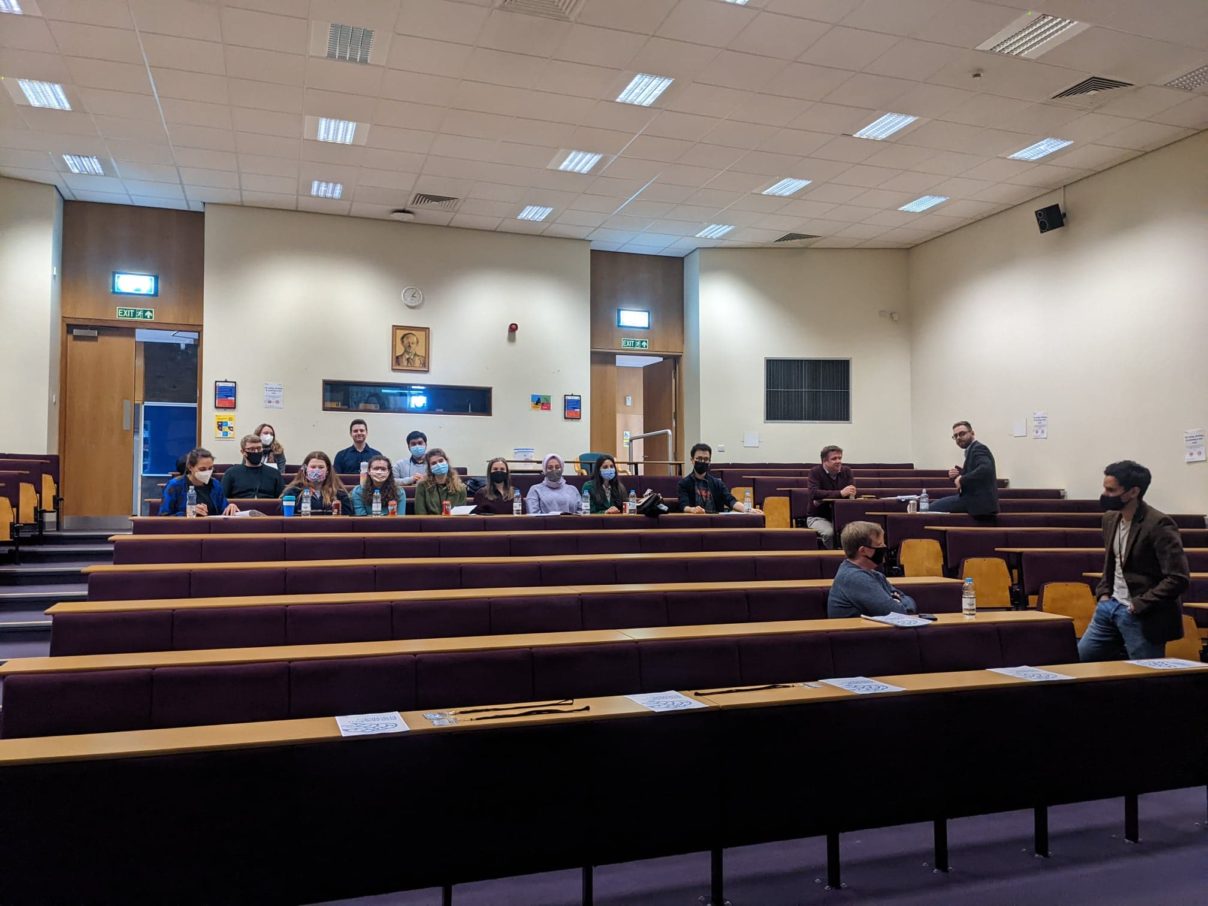16th Annual Psychology Postgraduate Research (PGR) Conference

We hosted the 16th Annual Psychology Postgraduate Research (PGR) Conference in the Psychology Department on 16th March 2022. This was a hybrid conference organised by two 2nd Year PGR students, Linda Arrighi and Tyler Ross, and included in-person and online presenters and attendees. Part of the funding for this conference was obtained through the DCAD student-led conference and events grants. This event was a huge success thanks to this funding. While the PGR conference is usually a yearly event, since the beginning of the COVID-19 pandemic it has been hosted online impoverishing the PGR student experience. With this event, we believe we accomplished to continue the tradition of and revitalise the enthusiasm for face-to-face student-led conferences within the Psychology Department. Notably, this was one of the first in-person events hosted in the Department of Psychology since the beginning of the COVID-19 pandemic in 2020 – which will definitely be in the minds of those who participated and attended for a long time to come.
PGR students presented either a talk or a poster at the conference. Seven 2nd and 3rd Year PGR students presented talks. Their presentations were around 10 minutes in length with 5 minutes for questions. The talks were hybrid, meaning that students were synchronously presenting to the online and in-person attendees, with questions from both types of attendees. Five 1st year PGR students brought along posters to the conference. The poster sessions were arranged so that attendees could walk around the room and ask questions to the students who made posters. The topics of the talks were varied and included allyship, animal studies on learning and social contagion, attention, autism, cognitive sex differences, the experiences of criminalised women, social media addiction, and weight perception. Five volunteer staff members judged the best talk and poster, which received a monetary prize to fund the winners’ research costs – Mila Popova and Georgia Sandars were the recipients of these prizes. For some of the students, the PGR Conference was the first opportunity they got to present their research in front of other peers during their PhD experience. The attendees were all other department members, providing a welcoming atmosphere that allowed students to present their research without the added pressure and stress of a totally new environment and unfamiliar audience. We hope that this was an invaluable experience for our PGR students to give them the confidence for their Viva examinations and to present at academic conferences and to lay audiences.
The PGR conference also involved a keynote speech by Dr Amy Milton from the University of Cambridge. Her keynote speech presented her group’s recent research on interventions to facilitate extinction therapy for traumatic and addiction memories in rodents with clear clinical implications for humans. This topic was of academic interest to all PGR students present. The keynote speech allowed them to learn, reflect upon and appreciate the diversity in perspectives and research topics within the field of Psychology.
Lunch, dinner and snacks were provided to all attendees and presenters who signed up for it. Both meals were an incredible opportunity for the staff and students of the Psychology Department to bond and network colloquially. These days, the chances to do that are very few, as online events do not usually lend themselves to include the social aspect that in-person ones do. Although a higher education department is a relatively professional environment, chances for social gatherings are necessary to foster interdisciplinary and inter-hierarchical collaborations and exchange of ideas.
The conference took about 3 months to organise, and the process taught me a series of invaluable skills, such as (1) effective and timely group email communication, (2) collating information in spreadsheets, (3) coming up with a timed schedule for the conference, (4) coordinating the 5 different types of attendees, and (5) creating a professional-looking booklet with abstracts and name tags for everyone attending. Because of COVID regulations, we ran the conference in two simultaneous rooms in person, as well as on Zoom. The hybrid nature of the conference required some extra planning ahead of the conference and extra attention during the day, especially when moderating the questions of the attendees. Overall, organising and running the PGR conference has helped me develop my event organisation skills thoroughly and I now feel comfortable organising and hosting hybrid teaching and non-teaching events. To anyone else who wishes to organise a similar event, I recommend using Google Sheets and Google Forms to gather information from presenters and attendees in good time before the event. I also suggest being clear when communicating the deadlines you have established and reminding people of them multiple times. In terms of approach, it has helped to stay flexible during the process of organising, as it saved any heartache if having to slightly change plans at the last minute.
We hope that this event has reminded other Psychology Department members of how great it is to dedicate a day to get together in person to chat about research. We believe hosting such events reflects a healthy, friendly and social research community within a department. For this reason, we hope the readers of this write-up are inspired to host similar events within their research group or department and again we would like to thank DCAD for their support in making this event possible.
Linda Arrighi
